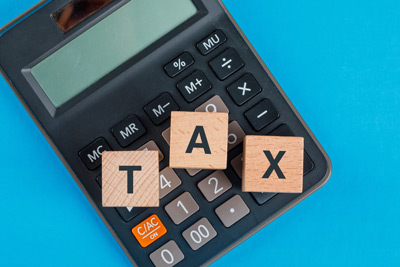
The Chancellor, Jeremy Hunt, recently delivered his 'Budget for Long-Term Growth on 7th March 2024', announcing the latest raft of tax changes to contend with, many of which came into effect from 6th April 2024. This follows huge pension change announcements last year and the continued effects of the stealth taxes hitting us all. Navigating all of these can be hard so here's a look at some of the key changes that might affect you this coming new tax year.
Capital gains tax (CGT) allowance
The CGT annual exemption more than halved from £12,300 to £6,000 in April 2023, and drops again to £3,000 from April 2024, meaning many investors selling assets will face a higher tax bill.
Any gains that exceed the CGT annual exemption are taxed at 20% for higher rate taxpayers and 10% for basic rate taxpayers. There is a new reduced CGT rate for residential property sales set at 24%, against the usual 28% rate for higher rate taxpayers. The 18% rate for basic rate taxpayers is unchanged.
Dividend allowance
From 6 April 2024, the dividend allowance is cut to £500. This follows a significant reduction in the allowance from £2,000 in 2022/23 to £1,000 in the 2023/24 tax year. You may pay dividend tax if your total income (dividends and wages) exceeds your personal allowance (£12,570 in 2024/25) and the dividend allowance.
National Insurance cut for the self-employed
Class 2 and Class 4 National Insurance Contributions (NICs), which are paid by self-employed people, are changing from 6 April 2024. Class 2 NICs are abolished, while Class 4 NICs are reduced from 9% to 8%, affecting those making a profit of more than £12,570 a year.
Class 2 NICs were £3.45 a week while Class 4 contributions were paid at a rate of 9% on profits between £12,570 and £50,270 (and 2% of profits over £50,270). The main Class 1 NICs, paid by employees, was reduced from 12% to 10% in January.
Pension Lifetime allowance
The pensions lifetime allowance (LTA) was abolished following the 2023 spring budget, and will be fully removed from the tax year 2024/25 onwards. This means there's no longer a limit on the amount of money you can build up in pensions over your lifetime without incurring a tax charge.
Two new allowances are being introduced. The first is the pension 'lump sum allowance', which has been capped at £268,275, which is 25% of the LTA. This is the amount of tax-free cash you can take from your pension.
The second is an individual 'lump sum and death benefit' allowance, set at £1,073,100 (available for those who don't have any of the LTA protections). This is the cumulative total amount that can be paid out as tax-free lump sums during your lifetime and on your death.
ISA rules will simply
From April 2024, you can open and pay into different ISAs of the same type in a single tax year; currently, this is limited to one of each type per tax year. For example, you could open two investment (Stocks and Shares) ISAs or two cash ISAs, allowing you to invest with different providers or to take advantage of better rates.
Your ISA allowance will remain at £20,000 in the 2024/25 tax year, on which you benefit from tax-free income and capital gains growth. The Junior ISA £9,000 limit also remains the same.
Other changes
The high income child benefit charge (HICBC) increases to £60,000 from the previous £50,000.
The charge is tapered so if a parent or their partner, earns between £60,000 and £80,000 it may still?be worth claiming.
There is a 1% charge on child benefit for every £200 of income that exceeds £60,000. If income exceeds £80,000, the charge is equal to the amount of the child benefit payment.
Anyone who has opted out of child benefits due to HICBC can start getting them via the HMRC app or online.
Child benefit will increase from £24 to £25.60 for the eldest child, while the rate for other children rises to £16.95 from £15.90.
Families with one child will now receive up to £1,331 a year – an annual increase of £83.20, and up to £881 a year per additional child – an annual increase of £54.60.
State pension increases to £221.20 a week, up from £203.85, equivalent to £11,502 a year, approaching the basic rate tax threshold of £12,570.
There are also changes to working tax credit with the basic element rising from £2,280 to £2,435, and the couple and lone parent element up from £2,340 to £2,500.
For more information, please Contact Us.